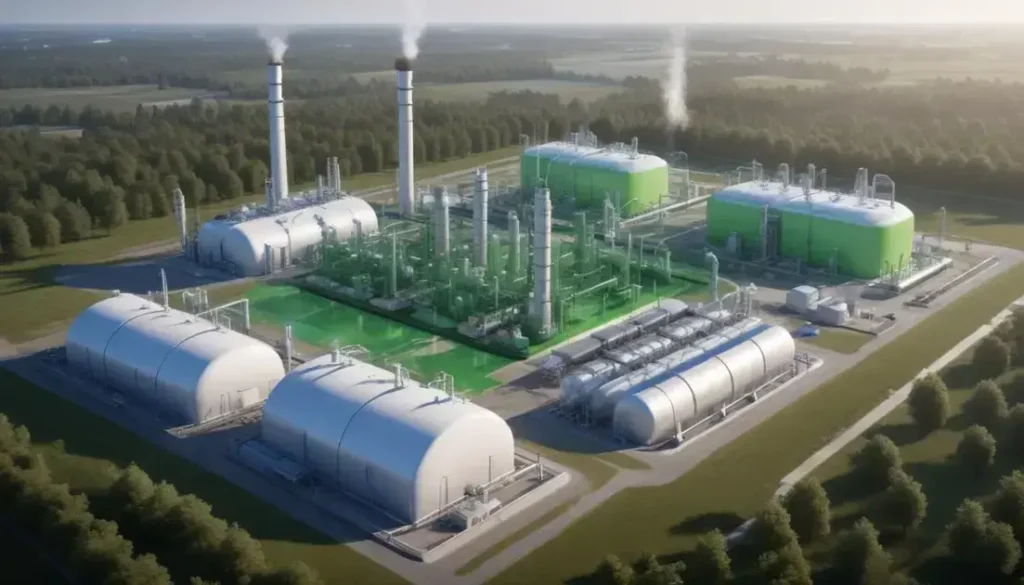Green ammonia is revolutionising sustainable energy production in the UK, offering significant opportunities for improving efficiency, reducing carbon emissions, and enhancing energy security in the transition to a greener economy.
Green ammonia is redefining the landscape of sustainable energy. But how does it impact the UK market? Join us as we explore its significance.
Innovative AI Integration in Green Hydrogen Production
The integration of AI in green hydrogen production represents a significant leap towards sustainable energy. By leveraging advanced algorithms, companies can enhance the efficiency of hydrogen generation processes. For instance, AI systems can optimise the usage of renewable energy sources, ensuring that production aligns with energy availability.
Moreover, predictive maintenance powered by AI technology can reduce downtime in production facilities. This leads to lower operational costs and increased reliability of supply. Predictive analytics can anticipate equipment failures, enabling timely interventions that prevent considerable losses.
AI also plays a crucial role in data management. By analysing vast amounts of operational data, AI systems can identify patterns and insights that humans might overlook. These insights can inform decision-making and improve production strategies, resulting in a more effective overall process.
As the demand for green hydrogen rises, embracing AI integration will be pivotal for companies aiming to stay competitive. Focusing on AI-driven innovations not only enhances sustainability but also positions firms as leaders in the evolving energy sector. With ongoing advancements, the future of hydrogen production looks promising, propelled by intelligent technologies.
Future Opportunities for the UK in Sustainable Energy
The quest for sustainable energy is opening up numerous opportunities for the UK. As global awareness of climate change increases, there is a pressing need for innovative solutions that reduce carbon footprints. This shift is prompting investments in renewable technologies, notably solar, wind, and hydrogen energy. Companies that embrace these developments stand to gain significantly.
Collaboration between industries and governments is essential to foster a resilient energy sector. Initiatives aimed at enhancing energy efficiency can help streamline operations and cut costs, while fostering a green economy. The UK can become a leader in renewable energy innovation by investing in research and development.
The emergence of green jobs is another vital aspect of this transition. As new technologies are adopted, the demand for skilled workers in renewable energy sectors is growing. Training programs focused on sustainability will equip the workforce with necessary skills, creating a competitive advantage for the UK.
Additionally, the UK’s geographical advantages, such as its coastal areas ideal for wind farms, position it uniquely for harnessing offshore energy. By capitalising on these natural resources, the UK can enhance its energy independence while contributing to the global fight against climate change.
Embracing Sustainable Energy for the Future
As the UK moves towards a greener future, the focus on sustainable energy presents exciting opportunities. The push for renewable technologies is not just a trend; it is essential for combating climate change.
By investing in innovations and training the workforce, the UK can strengthen its position as a leader in the renewable energy sector. This effort will not only reduce carbon emissions but will also create jobs and stimulate economic growth.
Furthermore, leveraging the country’s natural resources, such as wind and solar energy, will enhance energy independence and security. As businesses and governments collaborate, the potential for positive change is vast.
In conclusion, adopting sustainable energy practices will be key for the UK to thrive in the future. By acting now, the country can pave the way for a cleaner, sustainable world.
Frequently Asked Questions
What are the benefits of adopting sustainable energy practices?
Adopting sustainable energy practices helps reduce carbon emissions, enhance energy security, and can lead to cost savings in the long run.
How can the UK become a leader in renewable energy?
The UK can become a leader by investing in innovative technologies, fostering collaboration between industries, and training a skilled workforce in sustainable practices.
What role does AI play in green hydrogen production?
AI optimises processes in green hydrogen production, improving efficiency, reducing costs, and enabling predictive maintenance.
What kinds of jobs will emerge from the green energy sector?
The green energy sector will create jobs related to renewable technologies, maintenance, engineering, and data analysis in sustainability.
What renewable energy sources are most viable for the UK?
The most viable renewable energy sources for the UK include wind, solar, and hydrogen energy, leveraging the country’s natural resources.
How can businesses contribute to a greener economy?
Businesses can contribute by implementing energy-efficient practices, investing in renewable energy, and supporting sustainable supply chains.


